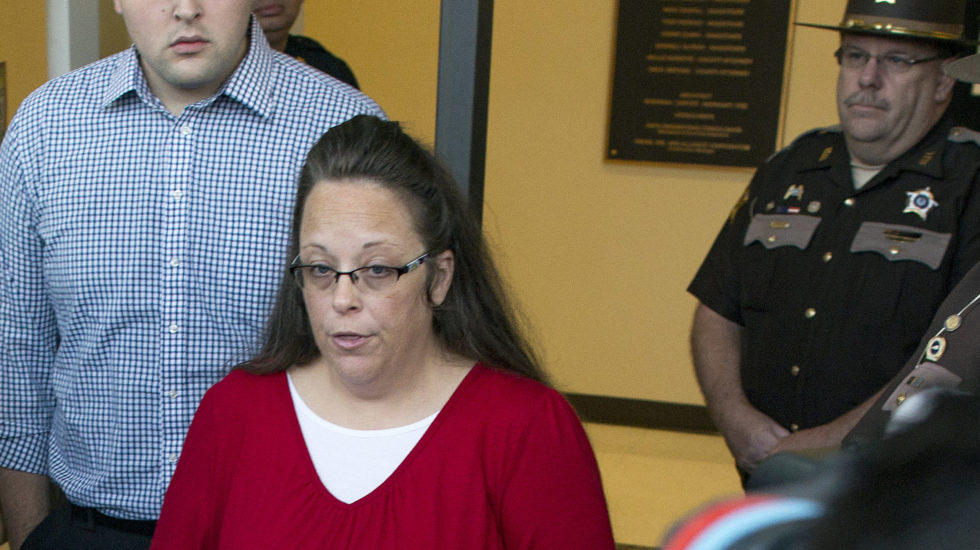The Supreme Court won’t hear an appeal from Kim Davis, the former Kentucky country clerk who hid behind her religious beliefs when she refused to issue marriage licenses to same-sex couples back in 2015. This ruling came on the first day of the high court’s new session. The Washington Post reports:
The court turned aside a case from Kim Davis, the former Rowan County clerk who was sued after she said her religious convictions kept her from recognizing same-sex marriages, even after the Supreme Court found a constitutional right to those unions in Obergefell v. Hodges. She was briefly jailed over the matter, and her case had attracted national attention.
While this is seemingly good news for same-sex advocates, the reactions from two justices, Clarence Thomas and Samuel Alito are concerning for future cases involving gay marriage.
NPR writes:
The two justices agreed with the decision not to hear the case, but used the occasion to take a legal baseball bat to the court’s 2015 decision, Obergefell v. Hodges, which declared that same-sex couples have a constitutional right to marry under the Fourteenth Amendment guarantee to equal protection of the law.
Writing for himself and Alito, Thomas said that the court’s decision “enables courts and governments to brand religious adherents who believe that marriage is between one man and one woman as bigots, making their religious liberty concerns that much easier to dismiss.”
James Esseks, director of the American Civil Liberties Union LGBT & HIV Project issued a statement reacting to the comments from Thomas and Alito saying:
“It is appalling that five years after the historic decision in Obergefell, two justices still consider same-sex couples less worthy of marriage than other couples. When you do a job on behalf of the government — as an employee or a contractor — there is no license to discriminate or turn people away because they do not meet religious criteria. Our government could not function if everyone doing the government’s business got to pick their own rules. That’s exactly what’s at stake in a case that will be argued on Nov. 4 — Fulton v. City of Philadelphia. We will fight against any attempts to open the door to legalized discrimination against LGBTQ people.”



